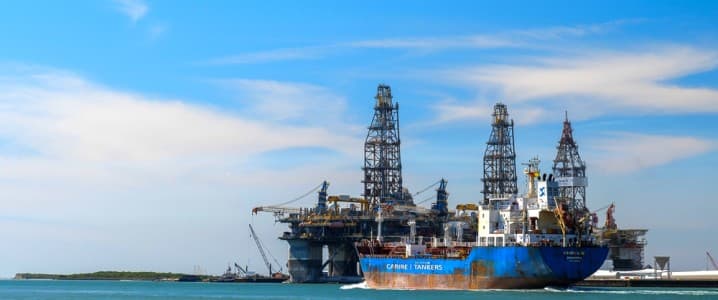Rosneft (MCX: ROSN) reported a steep 68% drop in first-half 2025 net income as falling oil prices, widening discounts on Russian crude, and a stronger ruble weighed heavily on earnings, despite steady production and continued investment in flagship projects like Vostok Oil.
Russia’s state-controlled oil major Rosneft posted net income of RUB 245 billion in H1 2025, down from RUB 773 billion a year earlier. EBITDA fell 36% to RUB 1,054 billion, while revenues dropped 17.6% to RUB 4.26 trillion. Free cash flow collapsed 75% to RUB 173 billion, as higher tariffs and a strong ruble compounded the hit from lower global crude benchmarks.
CEO Igor Sechin blamed a “significant oversupply” in the oil market, driven largely by OPEC producers, along with sanctions-driven discounts on Russian crude. He warned that the global oil surplus could reach 2.6 million bpd in Q4 2025, prolonging price weakness into 2026. Sechin also criticized Russian monetary policy, arguing that the elevated key interest rate artificially strengthens the ruble, hurting exporters and eroding state revenues.
Despite the earnings hit, Rosneft produced 121.6 million tonnes of oil equivalent in H1, broadly steady year-on-year. This included 89.3 million tonnes of crude (3.67 million bpd) and 39.3 bcm of gas. Refining volumes fell to 38.7 million tonnes, reflecting maintenance, logistics bottlenecks, and price-driven optimization, though the company increased its oil conversion rate to 77.6%.
Investment remained robust, with RUB 769 billion in capex, focused on upstream projects. The Vostok Oil development in the Russian Arctic advanced, with seismic surveys, drilling campaigns, and major progress on pipelines and port infrastructure at Sever Bay. Pilot production is underway at the Payakhskoye and Ichemminskoye fields.
Rosneft also highlighted ESG progress, including a 40% reduction in Lost Workday Injury Severity, advances in wastewater treatment, and the development of new oil spill detection technology. In June, the company was included in the Moscow Exchange’s Climate Sustainability Index.
Sechin emphasized Rosneft’s adherence to shareholder returns, noting the company paid RUB 542 billion in dividends for 2024, equal to RUB 51.15 per share. He contrasted this with rivals that fund dividends via debt, framing Rosneft as maintaining financial discipline.
The results underscore the dual pressures facing Russian oil producers: a global supply glut fueled by OPEC+ output, and domestic challenges from sanctions, tariffs, and monetary policy. While peers like ExxonMobil and Aramco saw modest production growth in H1, Rosneft’s margins remain squeezed by geopolitical headwinds and rising costs at home.
By Charles Kennedy for Oilprice.com
More Top Reads From Oilprice.com

